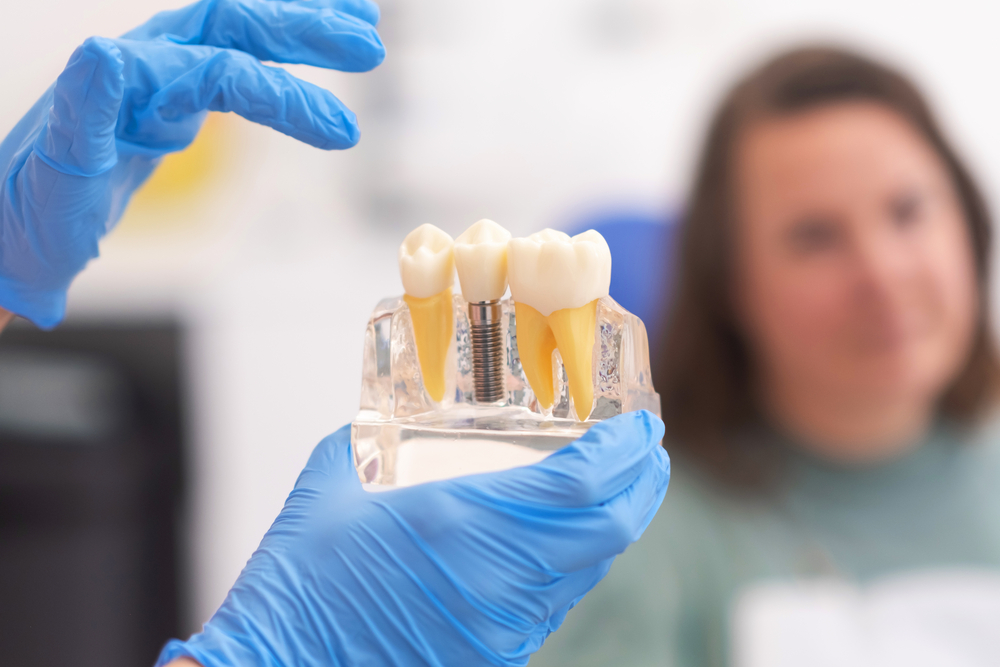Dental implants have revolutionized restorative dentistry, providing a long-term solution for missing teeth. However, the materials used in these implants and the integration of advanced technologies, like artificial intelligence (AI), have led to significant improvements in patient outcomes. This article delves into the advantages of biocompatible dental implants, highlighting how AI is enhancing the process.
Understanding Dental Implants
Dental implants are artificial tooth roots, typically made of titanium, surgically placed into the jawbone to support a replacement tooth or bridge. The traditional materials used in implants have been successful, but recent advancements in biocompatibility have introduced new options that may offer better integration with the body, reduced risk of rejection, and enhanced long-term success.
What Are Biocompatible Dental Implants?
Biocompatible dental implants are designed to be more compatible with the body’s natural tissues, reducing the likelihood of adverse reactions. These implants are often made from materials like zirconia, which is known for its strength, durability, and aesthetic appeal. Zirconia implants are also metal-free, which is advantageous for patients with metal sensitivities or allergies.
Advantages of Biocompatible Dental Implants
1. Improved Integration and Healing
One of the primary advantages of biocompatible dental implants is their ability to integrate more seamlessly with the natural bone and tissue. This improved integration, known as osseointegration, ensures a more stable and secure foundation for the replacement tooth. The healing process is often faster and less complicated, leading to higher success rates and patient satisfaction.
2. Reduced Risk of Infection and Inflammation
Traditional dental implants, though generally safe, carry a risk of infection and inflammation, particularly in patients with sensitivities to certain metals. Biocompatible materials like zirconia are less likely to cause adverse reactions, significantly reducing the risk of peri-implantitis, a condition characterized by inflammation around the implant site.
3. Aesthetic and Functional Benefits
Biocompatible dental implants, especially those made from zirconia, offer superior aesthetic outcomes. Zirconia’s natural white color closely mimics the appearance of natural teeth, providing a more pleasing look compared to the metallic hue of traditional titanium implants. Additionally, these implants are incredibly strong and durable, ensuring long-term functionality and patient confidence.
4. Compatibility with Advanced Technologies
The integration of artificial intelligence (AI) in dentistry has further enhanced the advantages of biocompatible dental implants. AI-driven diagnostic tools and treatment planning software can analyze a patient’s specific needs, predict outcomes, and customize implants to achieve optimal results. This personalized approach not only improves the fit and function of the implant but also enhances the overall patient experience.
How Artificial Intelligence Enhances Dental Implants
AI has become a game-changer in many fields, and dentistry is no exception. The application of AI in dental implantology has led to more precise diagnostics, better treatment planning, and improved patient outcomes.
1. Precision Diagnostics
AI algorithms can analyze vast amounts of patient data, including medical histories, imaging, and genetic information, to provide highly accurate diagnoses. This precision helps in identifying the most suitable type of implant and predicting potential complications, ensuring that biocompatible materials are selected for the best possible outcome.
2. Customized Treatment Plans
AI-powered software can create customized treatment plans tailored to the individual needs of each patient. By simulating various scenarios and outcomes, AI helps dentists choose the most effective approach for implant placement. This customization ensures that biocompatible implants are placed with maximum efficiency, reducing surgery time and improving recovery.
3. Enhanced Surgical Precision
During the actual implant procedure, AI technology can assist surgeons with real-time guidance and precision. Robotic systems, guided by AI, can perform minimally invasive surgeries with exceptional accuracy, reducing the risk of human error. This precision is particularly beneficial when placing biocompatible implants, as it ensures optimal positioning and integration.
4. Predictive Maintenance and Monitoring
Post-surgery, AI can continue to play a vital role in monitoring the health and stability of dental implants. AI systems can track the integration process, detect early signs of complications, and recommend timely interventions. This ongoing monitoring helps maintain the health of biocompatible implants, ensuring long-term success and patient satisfaction.
Biocompatible dental implants represent a significant advancement in restorative dentistry, offering numerous benefits over traditional materials. These advantages, combined with the integration of artificial intelligence, result in improved patient outcomes, faster healing, and enhanced aesthetic and functional results. As technology continues to evolve, the synergy between biocompatible materials and AI promises even greater advancements in the field of dental implantology. For patients seeking the best in dental restoration, biocompatible dental implants, supported by cutting-edge AI, provide a promising solution for a healthier, more confident smile.

